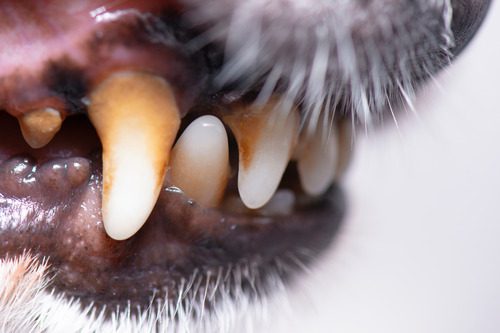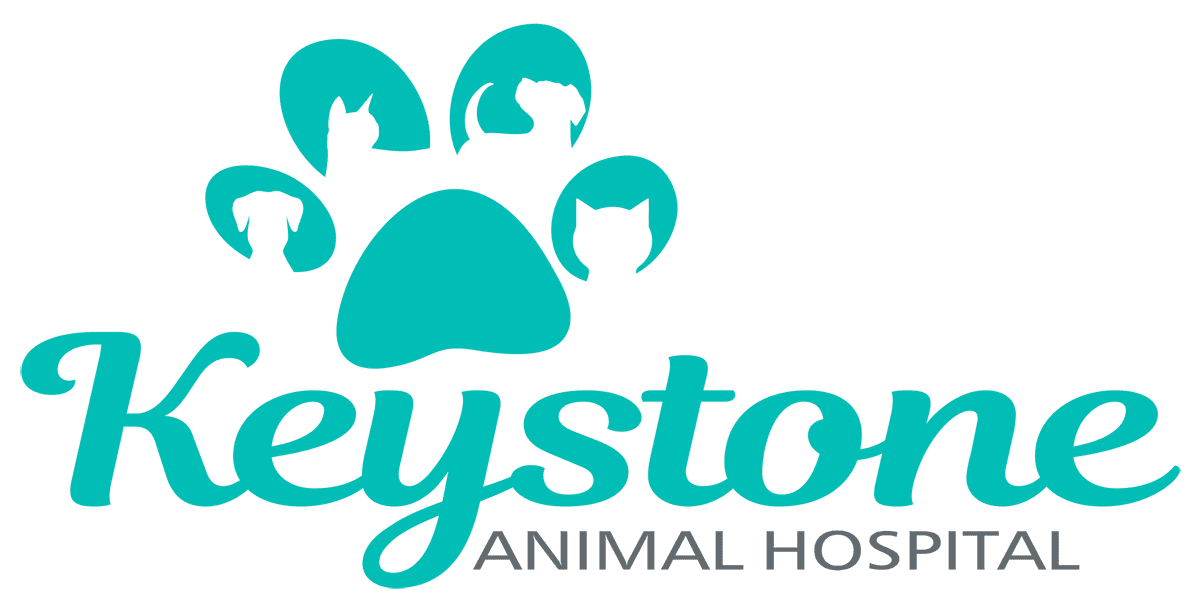Why Are My Dog’s Teeth Yellow?
When you notice a yellow tinge on your dog’s teeth, it’s natural to feel concerned. Yellow teeth can be a sign of various health issues that may affect your dog’s quality of life. In this blog, we’ll explore the common reasons behind why your dog’s teeth might turn yellow, what it means for their health, and how Keystone Animal Hospital in Bradenton, FL, can help maintain your dog’s dental health.

Understanding the Causes of Yellow Teeth in Dogs
Yellowing teeth in dogs can be attributed to several factors ranging from natural aging to more concerning health issues. Understanding these causes is the first step towards ensuring your pet maintains a healthy mouth.
Diet and Its Effects on Dental Health
The most common cause of yellow teeth in dogs is their diet. Foods that are high in certain substances can stain teeth over time, much like coffee or tea does for human teeth. Commercial dog foods, especially those that are soft or particularly sticky, can also contribute to plaque buildup, which not only discolors teeth but can lead to more serious dental conditions if not addressed.
Plaque and Tartar Buildup
As dogs age, they are more susceptible to plaque accumulation. Plaque, a film of bacteria that forms on the teeth, can harden into tartar if not removed regularly. Tartar is significantly harder than plaque and contributes to the yellowing of teeth. This buildup not only affects the color of your dog’s teeth but can also cause oral diseases and bad breath.
Health Implications of Yellow Teeth
Yellow teeth are not just a cosmetic issue; they can also be indicative of underlying health problems that require attention.
Gum Disease and Its Progression
One of the primary concerns associated with yellow teeth is gum disease, or periodontitis. This condition starts as gingivitis caused by plaque buildup and can progress to affect the deeper structures of the teeth, leading to pain, infection, and even tooth loss. Regular dental check-ups are vital to prevent these severe outcomes.
Indicators of More Serious Health Issues
In some cases, yellow teeth can signal more serious health issues beyond the gums and teeth themselves. Liver or kidney diseases, for example, can manifest symptoms in the mouth, including yellowed teeth. It’s important to consult with a veterinarian if you notice any sudden changes in your dog’s dental coloration.
Preventive Measures and Veterinary Care
Prevention is always better than cure, especially when it comes to your dog’s dental health. Here are some steps you can take to prevent your dog’s teeth from turning yellow.
- Regular Dental Check-ups: Scheduling regular dental check-ups at Keystone Animal Hospital can help catch and address dental issues before they become severe. Our veterinarians are equipped to provide professional cleanings, which can remove tartar and plaque that you can’t take care of at home.
- Proper Oral Hygiene Practices: Implementing a regular dental care routine at home is crucial. This includes brushing your dog’s teeth regularly with toothpaste specifically formulated for dogs, providing dental chews, and using toys that help clean the teeth through natural chewing behaviors.
When to Consult a Veterinarian
If you notice your dog’s teeth turning yellow, it’s a good idea to consult a veterinarian to rule out any potential health issues. During a dental check-up, our veterinarians will thoroughly examine your dog’s teeth and gums to identify any signs of disease or concern. This might include digital dental X-rays to look below the gumline where problems start unnoticed.
The Role of Professional Dental Cleanings
Professional dental cleanings involve scaling to remove tartar buildup and polishing to smooth the tooth surface, making it more difficult for plaque to adhere. These cleanings can significantly reduce the risk of dental diseases and improve the overall health of your dog.
Keeping Your Dog’s Teeth Clean
If you’ve noticed that your dog’s teeth have a yellow hue, it’s important to take action and not ignore this sign. Yellow teeth can be more than just an aesthetic issue; they could indicate underlying health problems that need attention. We recommend contacting Keystone Animal Hospital for a thorough dental examination to ensure that your dog’s teeth and overall health are managed properly. During a visit, our skilled veterinarians can provide a detailed assessment and professional cleaning to help protect your dog against dental diseases. Give us a call at (941) 741-8445 to book an appointment and help your dog achieve a healthier, happier smile.
